- europages
- >
- COMPANIES - SUPPLIERS - SERVICE PROVIDERS
- >
- collimators
Results for
Collimators - Import export
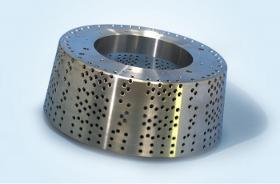
PLANSEE SE
Austria
Plansee collimators are made of tungsten heavy metal alloys (Densimet® alloys). Due to the high density of the material, collimators perfectly shield from x-rays and gamma rays and therefore protect the healthy tissue during radiotherapy. Densimet® tungsten alloys are distinguished by their particularly high density. Combined with their ability to absorb radiation as well as their outstanding mechanical properties and machinability. Particular material properties: — high density of 17.0 to 18.8g/cm³ — better machinability compared to pure tungsten — high Young’s modulus and very good mechanical properties — high absorption capacity for X-rays and gamma rays — harmless to the health and environment
Request for a quote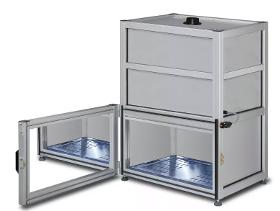
OPSYTEC DR. GRÖBEL GMBH
Germany
The „Guidance document on the impact of water treatment processes on residues of active substances or their metabolites in water abstracted for the production of drinking water“ of the European Chemicals Agency (ECHA) and the European Food Safety Authority (EFSA) provides a framework for risk assessment with regard to the authorization of active substances contained in plant protection products (PPPs) and biocidal products and the approval of these products. The guidance enables the identification of actual health concerns that may arise from exposure to harmful compounds that may be formed during water treatment for drinking water production. The focus is on common water treatment methods within the European Union (EU). The UV irradiation, according to the guideline, chapter 4.2.4.6. can be realized by the BSM-03 in a reproducible way.
Request for a quote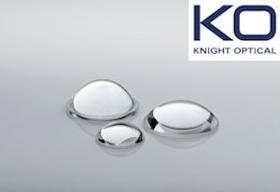
KNIGHT OPTICAL (UK) LTD
United Kingdom
Knight Optical We can offer Custom Moulded Aspheric Lenses for use with Laser Diode Collimators. Aspheric lens surfaces are used to correct spherical aberration (where the converging light from a lens does not have a common focal point, resulting in a distorted image) in lasers and imaging. Traditional spherical lenses cannot collimate light effectively because even small angles of incidence can produce spherical aberrations. This can mean that several components may be required to get the desired result. The non-spherical surface of an aspheric lens allows a single component to effectively focus or collimate even highly divergent emissions, potentially replacing a multi-lens system with a single aspheric lens. Therefore Aspheric Lenses that are moulded are ideal for use within laser diode-to-fibre coupling applications. For more information read PDF ….
Request for a quote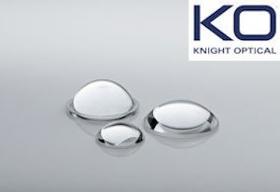
KNIGHT OPTICAL (UK) LTD
United Kingdom
Knight Optical We can offer Custom Moulded Aspheric Lenses for use with Laser Diode Collimators. Aspheric lens surfaces are used to correct spherical aberration (where the converging light from a lens does not have a common focal point, resulting in a distorted image) in lasers and imaging. Traditional spherical lenses cannot collimate light effectively because even small angles of incidence can produce spherical aberrations. This can mean that several components may be required to get the desired result. The non-spherical surface of an aspheric lens allows a single component to effectively focus or collimate even highly divergent emissions, potentially replacing a multi-lens system with a single aspheric lens. Therefore Aspheric Lenses that are moulded are ideal for use within laser diode-to-fibre coupling applications. For more information read the PDF..
Request for a quote
INGENERIC GMBH
Germany
The Slow-Axis Collimation optic is a highly efficient means of forming the beam in the slow-axis of diode lasers. It is available either as a monolithic array of cylindrical lenses or as a single lens. All of our optics are produced using high-quality optical glass. The exacting product tolerances guarantee efficient collimation of the light from all emitters and compatibility with laser bars and stacks In order to offer the best solution for your application INGENERIC provides a broad spectrum of Slow-Axis Collimation optics off the shelf. With respect to length or support structures the lenses can be tailored to your specific needs.
Request for a quoteDo you sell or make similar products?
Sign up to europages and have your products listed
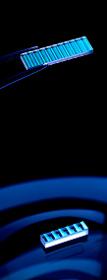
INGENERIC GMBH
Germany
INGENERIC SAC The Slow-Axis Collimation optic is a highly efficient means of forming the beam in the slow-axis of diode lasers. It is available either as a monolithic array of cylindrical lenses or as a single lens. All of our optics are produced using high-quality optical glass. The exacting product tolerances guarantee efficient collimation of the light from all emitters and compatibility with laser bars and stacks Product Spectrum In order to offer the best solution for your application INGENERIC provides a broad spectrum of Slow-Axis Collimation optics off the shelf. With respect to length or support structures the lenses can be tailored to your specific needs. Advantages transmission up to 99% minimized dead zones highest level of precision and uniformity customized solutions with small NRE-costs highly economical manufacturing process for large quantities reliable and stable quality
Request for a quote
INGENERIC GMBH
Germany
INGENERIC FAC The most important optical component in the beam shaping systems in high-power diode lasers is the Fast-Axis Collimation optic. The lenses are manufactured from high-quality glass and have an acylindrical surface. Their high numerical aperture permits the entire diode output to be collimated with outstanding beam quality. The high transmission and excellent collimation characteristics guarantee the highest levels of beam shaping efficiency for diode lasers. INGENERIC FAI By means of an FAI lens, the emitter can be directly imaged into a fiber or a target plane. The design of INGENERIC’s FAI lenses is optimized for this specific application and allows an efficient and aberration-free imaging of the emitter Product Spectrum In order to offer the best solution for your application INGENERIC provides a broad spectrum of Fast-Axis Collimation optics from the shelf. Years of development allow us to provide optimized acylindrical lenses for different applications. Based on...
Request for a quote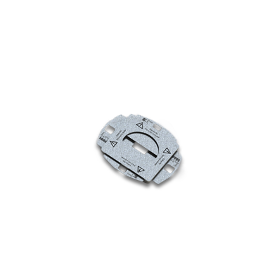
TELEDYNE ICM
Belgium
Detailed images are a common goal for all NDT operators. Depending on the configurations, noise or backscattering effects, disturbances in the results and interpretations may occur. To reduce these effects, ICM engineers have developed a specific adjustable collimator that helps to manually reduce the X-Ray beam that comes from the CP120B and the CP160B. The collimator strictly focuses the X-Ray beam on the target and in doing so reduces the noise effect, the backscattering effects and improves the penetration. This collimator can be mounted on the CP120B & CP160B via a specific support that is placed on the generators.
Request for a quote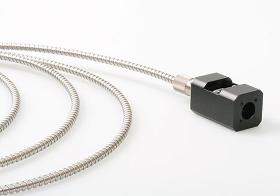
TOPTICA PHOTONICS AG
Germany
The FiberOut fiber collimator transforms the divergent beam emitted at the end of an optical fiber into a collimated one. It can be equipped with a variety of lenses, matching different fiber mode-field diameters and output beam sizes. The rugged, inexpensive collimator can be used for both FC/PC and FC/APC-type connectors. It can be easily mounted on post or into optical mounts (25 mm diameter).
Request for a quoteResults for
Collimators - Import exportNumber of results
10 ProductsCountries
Company type